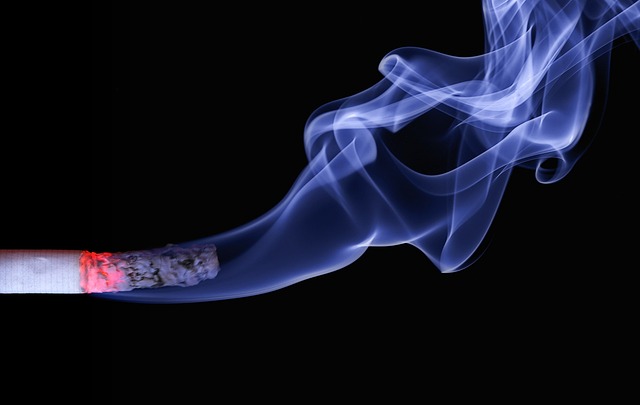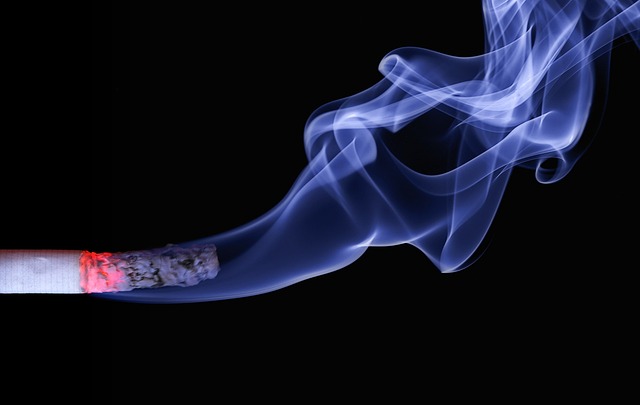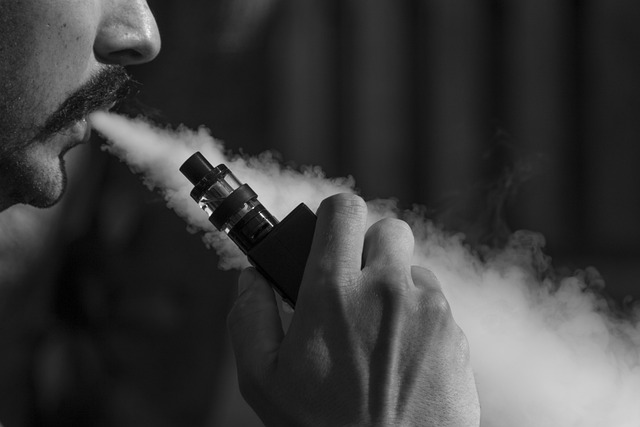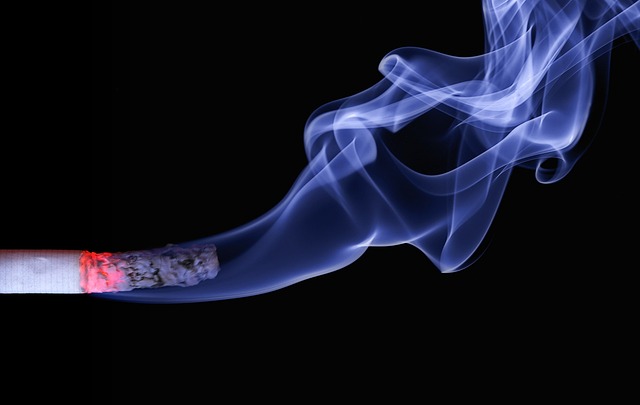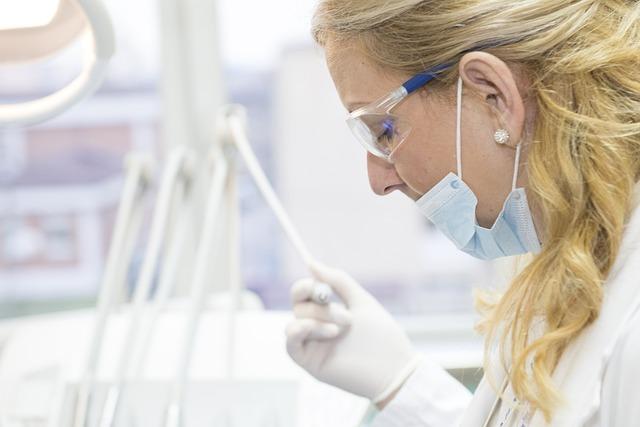Wisdom Teeth Surgery and Smoking: Important Facts
Wisdom teeth, those mysterious molars that emerge during our late teens or early twenties, can often spark curiosity and concern. As they push their way through the gums, many individuals find themselves facing the inevitable question: to smoke or not to smoke after wisdom teeth surgery? While the answer may seem straightforward, it is crucial to delve into the facts to make an informed decision. In this article, we will explore the important considerations surrounding smoking and wisdom teeth surgery, equipping you with the knowledge you need to navigate this post-operative dilemma confidently and responsibly. So, let us embark on this journey, uncovering the crucial facts that will guide you towards a smooth recovery while maintaining your smoking habits.
1. Understanding Wisdom Teeth Surgery: What You Need to Know
Wisdom teeth surgery is a common dental procedure that involves the extraction of the third molars, also known as wisdom teeth. These teeth typically emerge between the ages of 17 and 25, and in many cases, they can cause various dental complications. Here are some essential points to help you better understand wisdom teeth surgery:
- Why is it necessary? Wisdom teeth often grow impacted, meaning they don’t have enough space to fully emerge or develop properly. This can lead to pain, infection, damage to surrounding teeth, and other oral health issues. As a result, it is often recommended to remove them through surgery to prevent these complications.
- What does the procedure involve? Wisdom teeth surgery is typically performed by an oral surgeon or a dentist with specialized training. The procedure is done under local or general anesthesia, depending on the complexity of the case and patient preference. The surgeon will make an incision in the gum tissue, remove the impacted tooth, and stitch the incision back up. The specifics of the surgery may vary depending on the individual case.
- What can you expect during recovery? After the surgery, some discomfort, swelling, and bleeding are normal. The recovery period usually takes about a week, during which it is important to follow the dentist’s instructions for proper care. This may include eating soft foods, taking prescribed pain medication, using ice packs to reduce swelling, and maintaining good oral hygiene. Most patients are able to resume their normal activities within a few days.
By understanding the basics of wisdom teeth surgery, you can make informed decisions about your oral health. It is crucial to consult with a dental professional to assess your specific case and determine the best course of action.

2. The Impact of Smoking on Wisdom Teeth Surgery: A Comprehensive Overview
Smoking has a significant impact on wisdom teeth surgery, affecting both the success of the procedure and the patient’s recovery. Here is a comprehensive overview of the various ways smoking can impact wisdom teeth surgery:
1. Delayed healing: Smoking delays the healing process after wisdom teeth surgery. The chemicals in tobacco smoke reduce blood flow, oxygen, and nutrients to the surgical site, impairing the body’s ability to repair and regenerate tissues. This can lead to prolonged pain, swelling, and increased risk of complications such as infection.
2. Increased risk of dry socket: Dry socket, a painful condition where the blood clot that normally forms after tooth extraction dislodges or dissolves, is more common in smokers. The toxic chemicals in cigarettes interfere with blood clot formation, making smokers more susceptible to this complication. Dry socket can significantly delay the healing process and require additional treatment.

3. Crucial Facts to Consider: Why Smoking and Wisdom Teeth Surgery Don’t Mix
When it comes to wisdom teeth surgery, it’s important to be aware of the potential risks and complications that can arise. One crucial fact to consider is the impact of smoking on the healing process. Smoking has been proven to impede the body’s ability to heal effectively, and this holds true for post-surgical recovery as well. If you are a smoker, it’s crucial to understand the following:
- Delayed healing: Smoking can significantly delay the healing process after wisdom teeth surgery. The chemicals in cigarettes can restrict blood flow and reduce the oxygen supply to the surgical site, making it harder for the body to repair itself. This can prolong pain, swelling, and the overall recovery time.
- Infection risk: Smoking weakens the immune system, making smokers more susceptible to infections. After wisdom teeth surgery, the open wounds in your mouth are particularly vulnerable to bacteria, and smoking can increase the likelihood of infection.
- Dry socket: One of the most common complications after wisdom teeth removal is dry socket, a painful condition where the blood clot at the extraction site becomes dislodged or dissolves prematurely. Smoking has been linked to a higher risk of developing dry socket, as the act of smoking can dislodge the clot or interfere with the healing process.
Considering these crucial facts, it is highly recommended to refrain from smoking before and after wisdom teeth surgery to maximize your chances of a smooth and successful recovery. Quitting smoking, even temporarily, can significantly improve your body’s ability to heal and reduce the risk of complications. If you need support or guidance in quitting smoking, consider reaching out to healthcare professionals who can provide you with resources and assistance throughout this important process.

4. Mitigating Risks: How to Prepare for Wisdom Teeth Surgery if You Smoke
When it comes to wisdom teeth surgery, smoking can pose additional risks and complications. However, with proper preparation and precautions, you can minimize these risks and ensure a smoother recovery. Here are some steps you can take to prepare for wisdom teeth surgery if you smoke:
1. Quit smoking: It is highly recommended to quit smoking at least a week before your surgery. Smoking can hinder the healing process and increase the risk of infection. By quitting smoking, you give your body a chance to recover more effectively.
2. Inform your oral surgeon: Make sure to inform your oral surgeon about your smoking habit. They will be able to provide you with specific instructions and recommendations to follow before and after the surgery. They may suggest using nicotine patches or gum as an alternative during the recovery period.
3. Avoid smoking after surgery: It is crucial to refrain from smoking for at least 48 to 72 hours after the surgery. Smoking can delay the healing process, increase the risk of dry socket, and cause other complications. Follow your surgeon’s advice on when it is safe to resume smoking, as it may vary depending on your individual case.
5. Post-Surgery Recovery: Smoking and its Effects on Healing Time
Smoking has been widely recognized as detrimental to overall health, but its impact on post-surgery recovery is often underestimated. Understanding the effects of smoking on healing time is crucial for patients undergoing surgery. Here, we delve into the relationship between smoking and the recovery process, shedding light on the reasons why smoking should be avoided during the healing phase.
1. Impaired Oxygen Supply: Smoking significantly reduces the amount of oxygen available in the blood. This reduced oxygen supply hampers the healing process, as oxygen is vital for tissue repair and regeneration. Furthermore, it can lead to complications such as delayed wound healing and increased risk of infection.
2. Constricted Blood Vessels: The harmful chemicals present in cigarettes cause blood vessels to constrict, restricting blood flow to surgical sites. This can impede the delivery of essential nutrients and immune cells required for healing. As a result, smokers may experience a longer recovery time and a higher likelihood of post-surgical complications.

6. Long-Term Consequences: The Relationship Between Smoking and Complications After Wisdom Teeth Surgery
Smoking has been strongly linked to a variety of complications that can arise after wisdom teeth surgery. These long-term consequences are important to consider for individuals who smoke and are planning to undergo this common dental procedure. Here are some key points to understand about the relationship between smoking and complications after wisdom teeth surgery:
- Delayed Healing: Smoking can significantly delay the healing process after wisdom teeth extraction. The chemicals in cigarettes can impede blood flow and oxygen delivery to the surgical site, hindering the body’s natural healing mechanisms. This delay in healing can increase the risk of infection, dry socket formation, and other post-operative complications.
- Infection Risk: Smokers are at a higher risk of developing infections after wisdom teeth surgery. The toxins in cigarette smoke weaken the immune system, making it less effective at fighting off bacteria. This compromised immune response can lead to infections in the surgical site, causing pain, swelling, and potential complications that may require further treatment.
- Dry Socket Formation: One of the most common complications associated with smoking after wisdom teeth removal is the development of dry socket. This painful condition occurs when the blood clot that forms in the socket after extraction dislodges or dissolves prematurely. Smoking can disrupt the formation and stability of the blood clot, increasing the likelihood of dry socket, which can prolong recovery time and cause severe discomfort.
Considering these potential complications, it is highly recommended that individuals refrain from smoking before and after wisdom teeth surgery. Quitting smoking or at least temporarily stopping before the procedure can significantly reduce the risk of complications and promote a smoother recovery. It is crucial to consult with a healthcare professional for personalized advice and support in quitting smoking to optimize the outcome of wisdom teeth surgery.
7. Making Informed Choices: Is it Worth Smoking When Facing Wisdom Teeth Surgery?
When it comes to wisdom teeth surgery, it is essential to make informed choices, including whether or not to smoke during the recovery period. Smoking can have detrimental effects on the healing process and overall oral health. Here are a few key factors to consider before lighting up that cigarette:
1. Delayed Healing: Smoking can significantly delay the healing process after wisdom teeth surgery. The chemicals present in cigarettes, such as nicotine and carbon monoxide, restrict blood flow and reduce oxygen levels, impeding the body’s ability to heal efficiently. This delay can lead to prolonged pain, increased risk of infection, and potential complications.
2. Increased Risk of Dry Socket: Dry socket is a common complication that can occur after wisdom teeth removal. It happens when the blood clot that forms in the extraction site becomes dislodged or dissolves prematurely, exposing the underlying bone and nerves. Smoking introduces heat, toxins, and suction into the oral cavity, which can disrupt the blood clot and significantly increase the chances of developing dry socket. This condition is extremely painful and requires additional treatment to alleviate the symptoms.
Frequently Asked Questions
Q: What is wisdom teeth surgery?
A: Wisdom teeth surgery, also known as third molar extraction, is a common dental procedure that involves removing the third molars, commonly called wisdom teeth, from the back of the mouth.
Q: Why are wisdom teeth removed?
A: Wisdom teeth are often removed due to various reasons such as impaction, crowding, decay, or gum disease. In many cases, these teeth can cause pain, infection, and damage to adjacent teeth if left untreated.
Q: Can I smoke after wisdom teeth surgery?
A: It is strongly advised to avoid smoking after wisdom teeth surgery. Smoking can significantly hinder the healing process and may increase the risk of complications such as infection, dry socket, delayed healing, and prolonged pain.
Q: What is dry socket, and how does smoking affect it?
A: Dry socket is a common complication that can occur after wisdom teeth extraction. It happens when the blood clot that forms in the extraction site becomes dislodged or dissolves prematurely, exposing the underlying bone and nerves. Smoking can delay the healing process, increase the risk of dry socket, and worsen the symptoms if it occurs.
Q: How does smoking affect the healing process after wisdom teeth surgery?
A: Smoking impairs the body’s natural healing mechanisms by constricting blood vessels, reducing oxygen supply, and inhibiting the immune response. This can lead to delayed healing, increased pain, heightened risk of infection, and other complications.
Q: How long should I wait to smoke after wisdom teeth surgery?
A: It is recommended to refrain from smoking for at least 72 hours, or ideally, until the surgical site has completely healed. However, quitting smoking altogether during the recovery period is highly beneficial for optimal healing and overall oral health.
Q: Are there any alternatives to smoking during the recovery period?
A: Yes, there are several alternatives to smoking that you can consider during the recovery period. Nicotine replacement therapy, such as nicotine gum or patches, can help manage nicotine cravings without the harmful effects of smoking. It is best to consult with your dentist or healthcare professional for personalized advice.
Q: What can I do to promote healing after wisdom teeth surgery?
A: To promote healing, it is important to follow post-operative instructions provided by your dentist. This may include maintaining proper oral hygiene, eating soft foods, avoiding strenuous physical activity, and taking prescribed medications. Additionally, staying hydrated, getting adequate rest, and avoiding smoking and alcohol can significantly aid in the healing process.
Q: Can smoking after wisdom teeth surgery lead to long-term complications?
A: Smoking after wisdom teeth surgery can potentially lead to long-term complications. Apart from delayed healing and increased risk of infection, smoking has been associated with various oral health problems, including gum disease, oral cancer, and reduced bone density. Quitting smoking is highly recommended for a healthier mouth and overall well-being.
Q: Is it safe to resume smoking after the healing process is complete?
A: While the healing process may be complete after a few weeks, it is important to note that smoking still poses risks to oral health. Smoking can negatively impact gum health, stain teeth, and increase the likelihood of oral diseases. It is advisable to quit smoking altogether to maintain optimal oral health and overall wellness.
To Conclude
In conclusion, it is evident that wisdom teeth surgery and smoking should not be taken lightly. As we have discussed, smoking can significantly impact the healing process and increase the risk of complications. It is crucial to refrain from smoking before and after the surgery to ensure a smooth and successful recovery.
Here are the key takeaways from this article:
1. Wisdom teeth surgery is a common procedure performed to alleviate pain and prevent potential dental problems.
2. Smoking can hinder the healing process by reducing blood flow and increasing the risk of infection.
3. It is strongly advised to quit smoking at least two weeks before the surgery and to refrain from smoking during the recovery period.
4. Nicotine replacement therapy or other smoking cessation methods can be beneficial in helping individuals quit smoking before the procedure.
5. Following the surgeon’s post-operative instructions diligently, including avoiding smoking, will aid in a faster and complication-free recovery.
Remember, your oral health is of utmost importance, and taking appropriate measures before and after wisdom teeth surgery can contribute to a successful outcome.
